Leveraging an EV ecosystem for a smooth and successful transition
Build a successful EV fleet with expert consultants, utility partnerships, and smart charging solutions. Transition smoothly with Geotab’s strategic EV ecosystem.
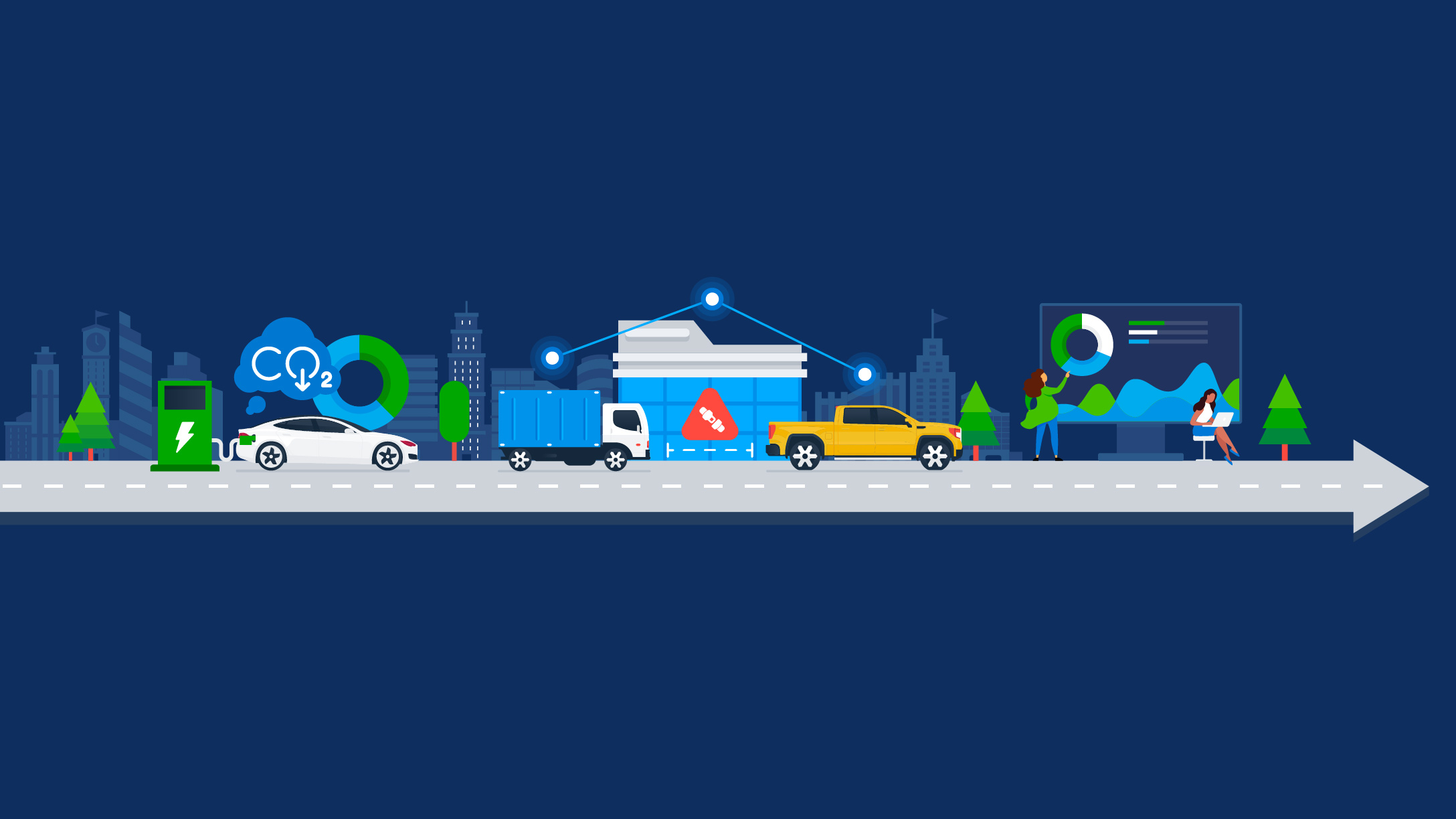
Transitioning to an EV fleet is a complex challenge for any fleet to make, with many separate elements to pull together. Building from our collaborative ecosystem of resources early on can help to ensure a smooth, swift and successful transition.
Benefit from Geotab’s strong ecosystem of partners
As you build a business case for electrification, surrounding yourself with the right team early on can boost the success of your fleet electrification project. Here are some important partners to consider including:
EV fleet and sustainability consultants
Consultants can leverage and complement your telematics data and insights, and provide a robust set of services and tools to take the complexity out of the transition. Their value also comes from their ability to bring all the other stakeholders together and supporting effective execution to get the best out of the EVs you bring into the fleet.
By engaging with a fleet management consultant from the ideation phase of your transition, they can help you to plan, design and implement your EV and charging infrastructure strategies with an end-to-end view of the process.

Utility & local government
It’s important to engage with your electric utility early in your fleet electrification process so that you can understand how their rate structure impacts the economics of your transition, and to plan for an increase in your electrical load. Many utilities offer special electricity rates or other EV-related programs that you may be able to benefit from.
They’ll highlight any necessary supply equipment or service upgrades and associated timelines needed to meet your future energy needs, as well as support with regulatory requirements or permits (e.g. right-of-way permit applications). Larger fleets may have to collaborate with their utilities and/or local governments on major infrastructure upgrades to support the greater loads. Some local governments offer support for fleet electrification, so contact your municipality to learn if there are any other programs available to you.
Engineering companies
Depending on the scale of your fleet electrification project, you may require an engineering firm to support your infrastructure build-out plans, carry out any electrical upgrades, and collaborate with your utility company. It’s best to start engaging these companies early on as you're identifying how many vehicles will be transitioned to electric, and where and when they will carry out the majority of their charging events.

Electric Vehicle Supply Equipment (EVSE), charge management systems (CMS) and Managed Services
EVSE
Depot charging infrastructure hardware includes not only the physical EVSE charging posts, but also the associated equipment (transformers, inverters, distribution), and also may include solar canopies and battery storage. All of this needs to be carefully planned to minimize CAPEX cost while accommodating future growth. Fleet vehicles and use cases will dictate an appropriate number of chargers as well as the right combination of expensive high-powered DC Fast Chargers, and lower cost (but slower) AC Level-2 chargers. Reliability, support, and manageability are critical considerations.
It isn’t a necessity that you have a relationship with each of these EVSE hardware/infrastructure providers. Instead, the relationship could be with the charging solution provider or charging as-a-service provider, with them managing and bringing in the right components for your requirements. Effectively, you may choose to work with your CMS provider to select the EVSE, or vice versa.
CMS and Managed Services
Effective EV charge management is an important consideration as you accelerate the adoption of electric vehicles into your operations. Integrating with EV fleet-focused CMS ensures that vehicles are optimally charged and available when needed while optimizing charging events for cost and carbon reductions. By including vehicle data such as state of charge, and route information, the charging algorithm can better prioritize which vehicles to charge first. A fleet-focused CMS balances the load based on the needs of fleet operations, while also optimizing cost by minimizing utility peak demand charges and leveraging lower time of use (TOU) utility rates. Managed Services usually include a CMS, but also additional benefits, such as 24/7 active monitoring, remote and on-site interventions, and performance guarantees.

You can work with your CMS or Managed Services provider to identify the right financing option for your fleet, whether that’s charging-as-a-service or outright procurement. Charging-as-a-service is an attractive option for many fleets as it moves the cost over to an operational cost business model, and moves some of the learning curve and risk away from the fleet.
Telematics and Fleet Management
Fleet telematics is at the core of today’s data-driven fleet, which is especially critical for planning and operationalizing EVs into a mixed fleet environment. It provides data to help you make informed decisions about what vehicles and routes are best suited for electrification, as well as effectively operationalizing EVs within your mixed fleet, to include integration with charging management systems (CMS), routing, scheduling, and other systems.
Ideally telematics are installed well in advance of initiating your EV transition project, to help inform your electrification strategy. Monitoring vehicle duty cycles, and capturing seasonal differences will help to assess which vehicles are suitable candidates for transitioning to electric.
A successful fleet electrification strategy must consider both vehicles and charging. When building your charging strategy, you can use your telematics software to analyze vehicle-side data such as dwell time and location to help inform how many chargers and what power level will be needed. It can also help determine whether vehicles will need a 1:1 charger ratio or if they can share the infrastructure, and whether there's sufficient power at the site, or if an upgrade or other measures such as on-site storage or load management will be necessary.
Ensuring optimal performance as you scale your EV operations
It’s vital that you have the right telematics solution in place that will provide you with full data support for all your EVs as you work towards full fleet electrification. This includes those integrating directly with the vehicle’s onboard system via factory installation or API. The telematics solution can provide a single pane of glass through which all other solutions can be viewed and managed.
There are a number of solutions that can integrate with your telematics software to expand the opportunities to optimize your newly adopted vehicles, as well as your remaining conventionally fueled vehicles:
Charging optimization solutions
Charging optimization solutions are of great value both before and after EV adoption. Before you introduce EVs into your fleet, it’s important to maximize vehicle productivity and miles driven, since this will result in the greatest fuel savings when switching to electric. These same solutions, when integrated into a telematics system that provides full data support for your EVs, will help fleets to determine the most efficient ways to deploy their electric vehicles and reduce miles traveled and energy costs.

Regardless of powertrain, considering dispatch schedules and required distances, and anticipating traffic can improve the efficiency of routing design and increase fleet productivity while helping to achieve fleet carbon and cost reduction objectives.
Eco-driving solutions
Improving the energy-efficiency of your drivers is a cost-effective way to maximize EV range and reduce the energy costs associated with your newly adopted vehicles. Meanwhile, for your remaining internal combustion vehicles, reduced idling and improved driver behavior are important operational efficiencies that can contribute to your sustainability goals by reducing fuel consumption and associated vehicle emissions.
Geotab’s active fleet management insights underpin successful fleet electrification
Geotab is here to help support you at any stage of your fleet electrification journey:
- Use our free Electric Vehicle Suitability Assessment (EVSA) to pinpoint the fleet vehicles that can be replaced by an equivalent EV based on their function and range requirements, and quantify the resulting environmental and financial savings.
- Benefit from our open API to seamlessly integrate third party platforms and solutions with vehicle telematics to reach your efficiency and decarbonization goals.
Visit the Fleet Electrification Knowledge Center to learn more about building your roadmap to an EV fleet. Also, learn how Geotab is supporting the transition to low-carbon transportation in its latest Sustainability and Impact Report
Geotab Sustainability Alliance
Geotab’s Sustainability Alliance is a group of solution and service providers dedicated to supporting your fleet in achieving sustainability goals or making the transition to electric.
Our partner solutions seamlessly integrate with the MyGeotab fleet management platform to accelerate the efficiency gains and decarbonization efforts of fleets. Integrated partner solutions from the Geotab Marketplace streamline EV management for fleet operators by providing a single pane of glass dashboard to extract meaningful data insights. Geotab’s leadership in EV data support across multiple OEMs and over 300 EV makes and models further enhance these integrated solutions.
Learn more about the Geotab Sustainability Alliance: https://www.geotab.com/sustainability-alliance/
Subscribe to get industry tips and insights
The Geotab Team write about company news.
Table of Contents
- Benefit from Geotab’s strong ecosystem of partners
- Electric Vehicle Supply Equipment (EVSE), charge management systems (CMS) and Managed Services
- Ensuring optimal performance as you scale your EV operations
- Geotab’s active fleet management insights underpin successful fleet electrification
- Geotab Sustainability Alliance
Subscribe to get industry tips and insights
Related posts
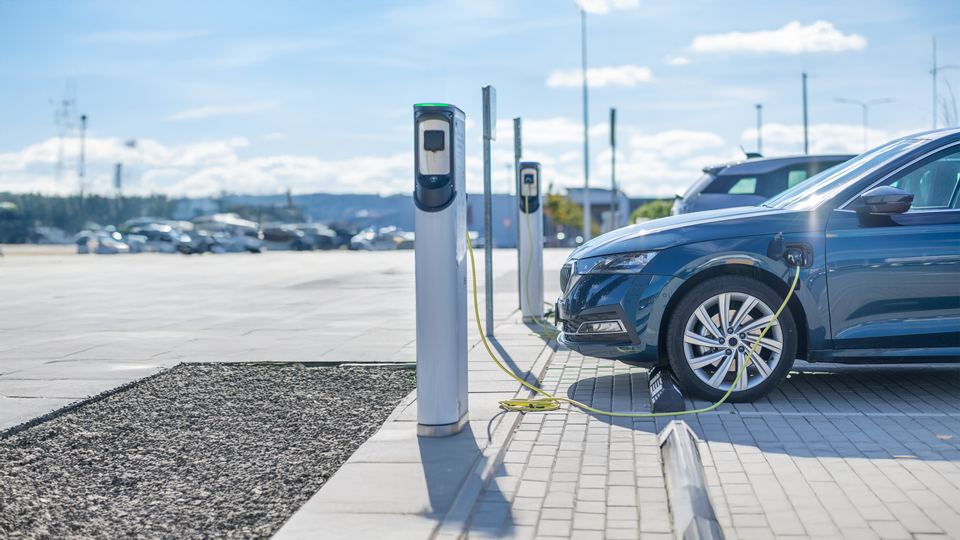
Beat the Heat: Easy Ways to Maximize Your EV Range This Summer
June 19, 2025
2 minute read
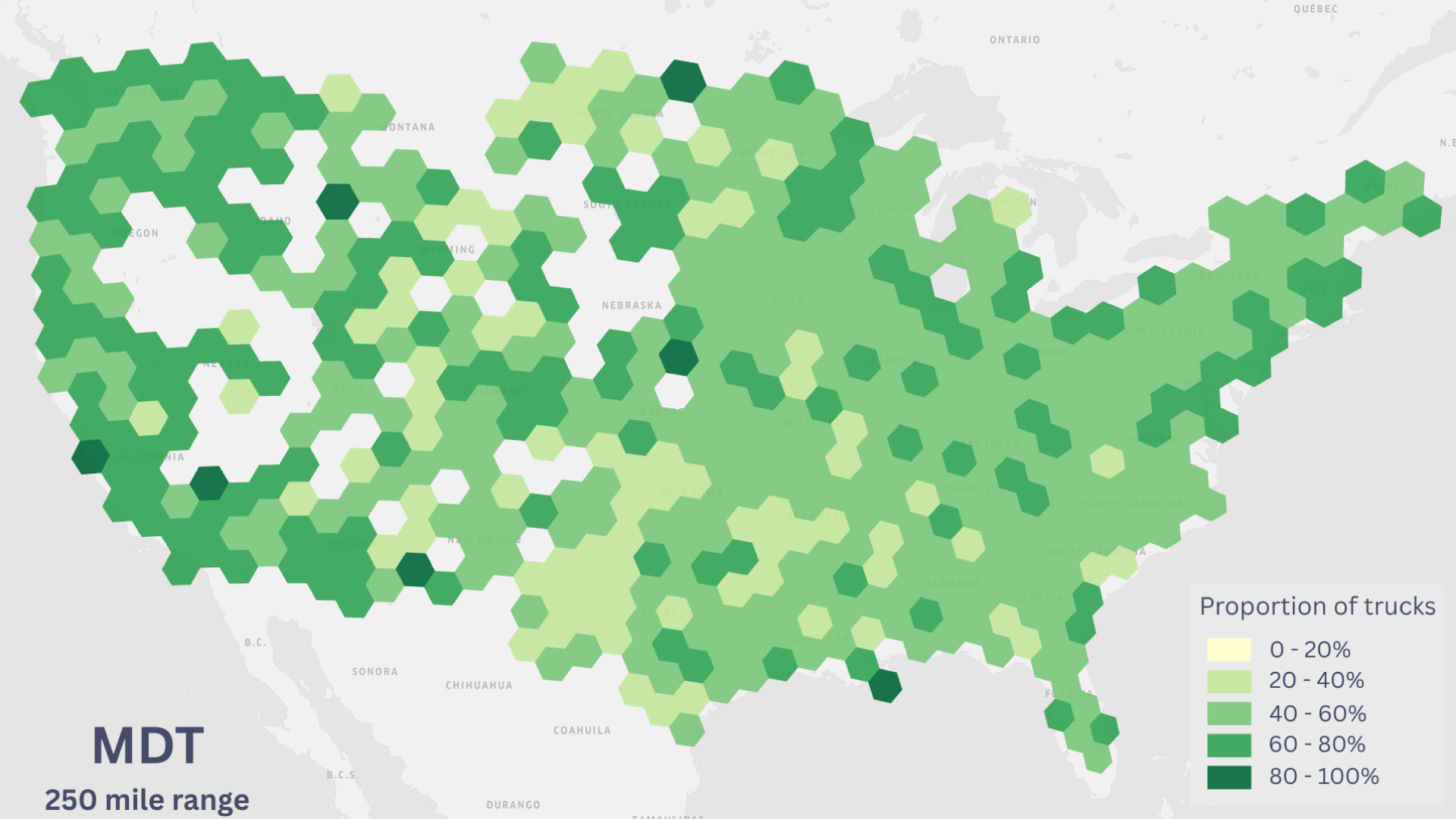
Charlotte Argue: Breaking down cost barriers for electric fleets
June 5, 2025
4 minute read
.jpg)
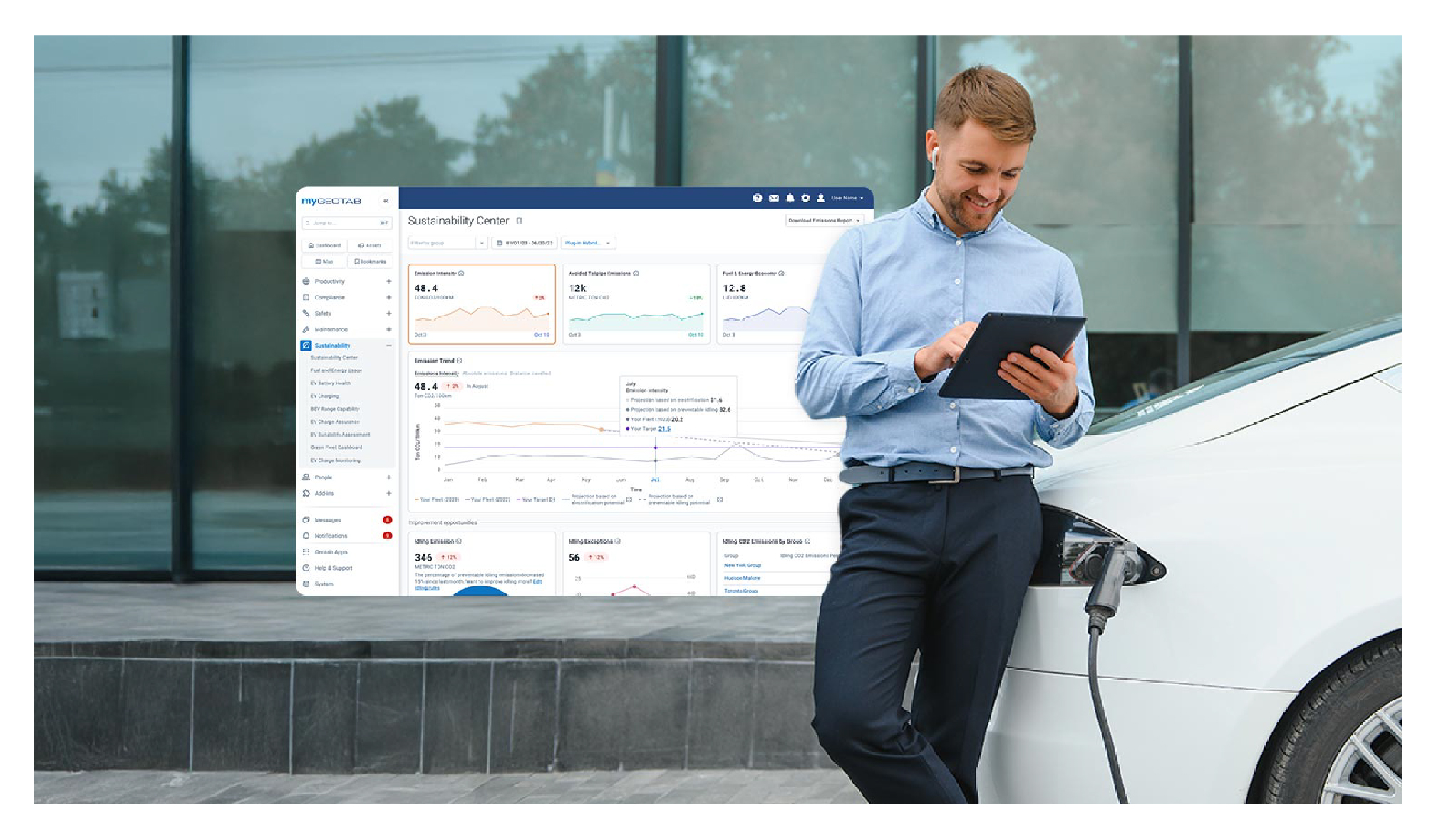
Geotab’s new fleet Sustainability Center simplifies fuel and emissions reduction
March 3, 2025
3 minute read
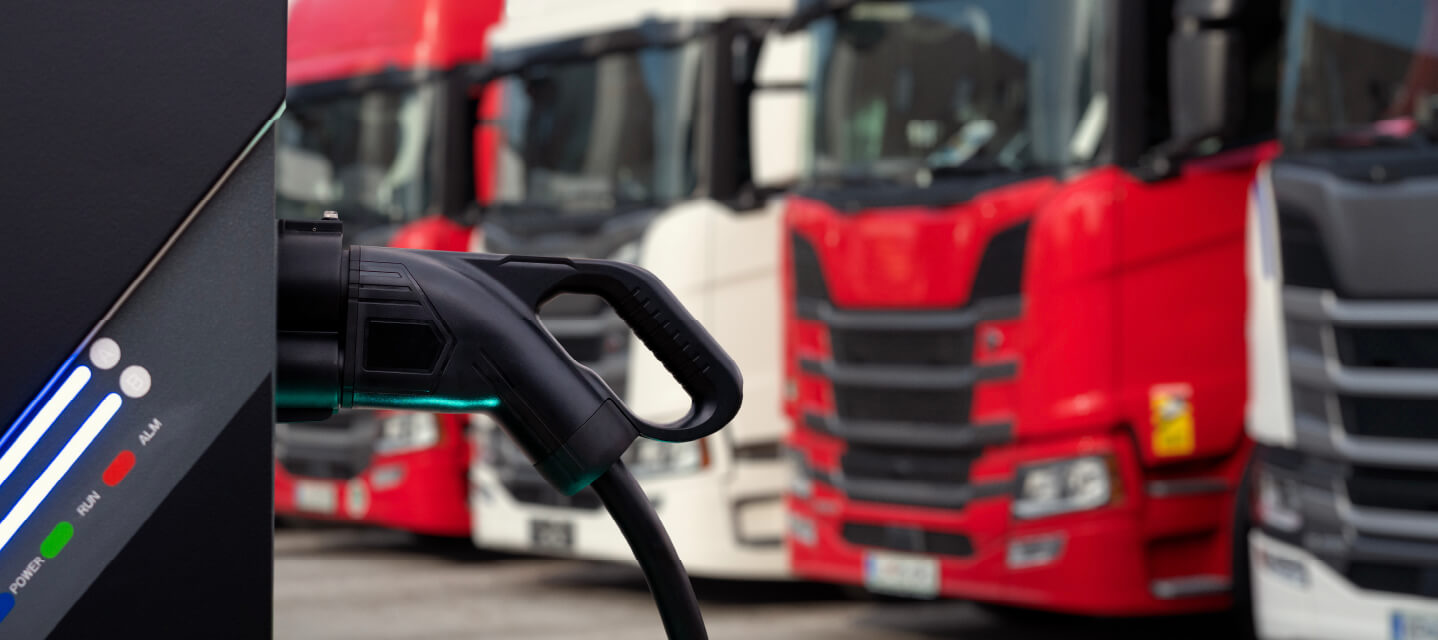
How long do electric car batteries last? What analyzing 10,000 EVs tells us…
January 20, 2025
9 minute read
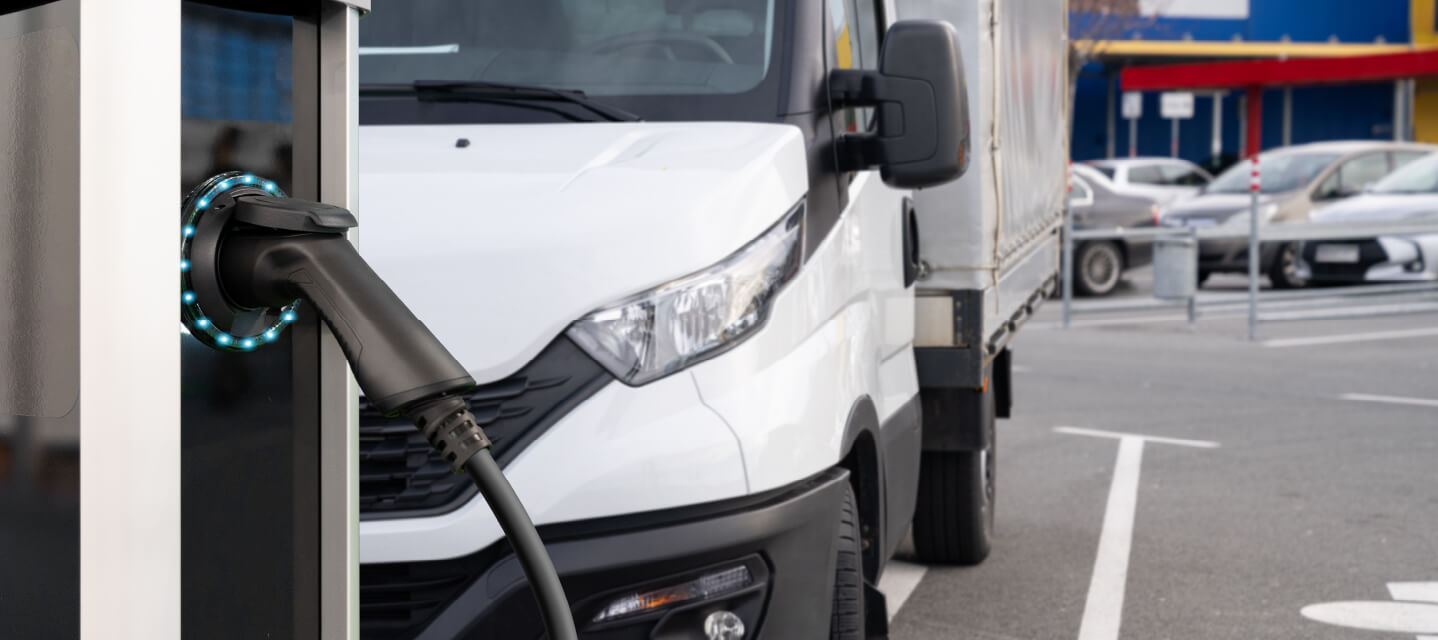
What is fleet electrification? (+ How to build a sustainable strategy)
January 13, 2025
4 minute read